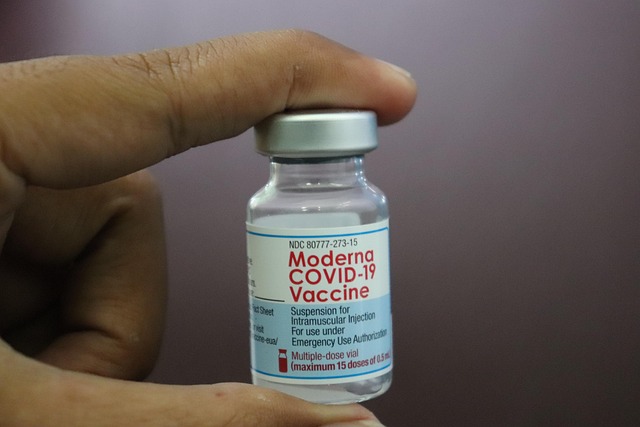Translation services are crucial for making UK public health reports accessible to diverse linguistic communities. They break down barriers posed by complex language, regional differences, and cultural nuances. These specialized services ensure accurate communication of critical health information, fostering collaboration, evidence-based decision-making, and ultimately improving public health outcomes across the UK. Leveraging advanced technologies like AI and Machine Translation will further enhance access and comprehension, especially during crises or research. By engaging professional translators with medical expertise and cultural sensitivity, these reports can reach all communities effectively, empowering them to make informed decisions for a healthier society.
In the UK, clear and accessible public health reporting is essential for empowering communities and fostering informed decision-making. However, complex linguistic and cultural nuances often hinder understanding, particularly among non-native speakers. This article explores the transformative power of translation services in addressing these challenges. We delve into the intricacies of public health reporting in the UK, highlighting the role of professional translators in overcoming language barriers. By examining key challenges, best practices, and successful case studies, we uncover how improved accessibility through translation enhances public health initiatives and ultimately benefits the nation.
- Understanding the Complexities of Public Health Reporting in the UK
- The Role of Translation Services in Overcoming Language Barriers
- Key Challenges in Translating Technical Public Health Documentation
- Best Practices for Accurate and Culturally Sensitive Translations
- Benefits of Improved Accessibility in Public Health Information
- Case Studies: Successful Translation Projects in UK Healthcare
- Choosing the Right Translation Agency for Public Health Reports
- Future Trends in Technology-Assisted Translation for Healthcare
- Enhancing Collaboration Between Health Authorities and Translators
Understanding the Complexities of Public Health Reporting in the UK

Public health reports are a critical tool for communicating vital information about disease trends, prevention strategies, and community health initiatives. However, their complexity and technical jargon can pose challenges for understanding, especially among non-experts. In the UK, with its diverse population and multifaceted healthcare system, effective public health reporting is further complicated by regional variations in data collection and reporting protocols.
Translation services play a pivotal role in bridging this communication gap. Professional translators specializing in public health terminology can accurately convey complex information, ensuring that reports are accessible to a broader audience. By facilitating the exchange of knowledge and best practices across regions and disciplines, these translation services enhance collaboration, enable evidence-based decision-making, and ultimately contribute to improving public health outcomes throughout the UK.
The Role of Translation Services in Overcoming Language Barriers

In the realm of public health, clear and accessible communication is paramount to ensure all citizens can understand and benefit from vital reports and initiatives. However, language barriers often pose a significant challenge in the UK, with diverse linguistic backgrounds among its population. This is where translation services play a crucial role in enhancing public health literacy.
Professional translation services for UK public health reports offer an effective solution. They employ skilled translators who can accurately convey complex medical and scientific information from one language to another while maintaining the integrity of the content. By bridging this linguistic gap, these services enable a broader range of individuals to access essential public health data, participate in discussions, and make informed decisions regarding their well-being. This, in turn, fosters a more inclusive and engaged community in navigating the nation’s public health landscape.
Key Challenges in Translating Technical Public Health Documentation

Public health reports, while vital for disseminating critical information, often employ complex technical language and jargon that can hinder understanding among non-specialists. This presents a significant challenge when translating documents intended for a broader UK audience. Effective translation services must navigate not just linguistic barriers but also semantic differences to ensure key messages are accurately conveyed.
Translation professionals working on public health reports face the daunting task of preserving the original data integrity while making it accessible. This involves meticulous handling of specialized terminology, ensuring consistency in usage across the document, and staying true to the nuances of the source text. Furthermore, cultural considerations play a crucial role, as certain concepts or practices may not have direct equivalents, necessitating creative solutions for meaningful translation.
Best Practices for Accurate and Culturally Sensitive Translations

When translating public health reports for a UK audience, accuracy and cultural sensitivity are paramount. It’s crucial to engage professional translation services with deep expertise in medical terminology and cultural nuances. This ensures that complex information is conveyed clearly and effectively, avoiding potential misinterpretations that could impact public health initiatives.
Best practices include using qualified translators who are native speakers of the target language and have a background in public health or related fields. Translators should also be trained in cultural sensitivity to accurately convey the tone and intent of the original report. Additionally, quality assurance processes such as peer review and back-translation can help guarantee precision. Incorporating feedback from diverse communities and subject matter experts further enhances the accuracy and relevance of the translated reports for their intended UK audience.
Benefits of Improved Accessibility in Public Health Information

Case Studies: Successful Translation Projects in UK Healthcare

The effective communication of public health reports is vital for ensuring the UK’s population has access to clear and understandable health information. Translation services play a crucial role in this process, especially when serving diverse linguistic communities. Successful case studies within the UK healthcare sector demonstrate the positive impact of professional translation. For instance, a recent project involved translating key COVID-19 guidelines into multiple languages for local community centres. This initiative ensured that hard-to-reach populations had access to essential public health advice, fostering better engagement and compliance with government directives.
Another notable example is the localisation of a national cancer awareness campaign, which significantly increased participation rates among ethnic minorities. By employing translation experts, healthcare organisations can adapt complex medical information into accessible resources tailored to specific communities’ cultural nuances. These projects showcase how strategic translation services contribute to improving public health outcomes and bridging communication gaps within the UK’s diverse population.
Choosing the Right Translation Agency for Public Health Reports

When it comes to translating public health reports, accuracy is paramount. These reports often contain complex technical language and require a deep understanding of both healthcare terminology and cultural nuances. Choosing the right translation agency is key to ensuring this level of precision. Look for agencies that specialize in scientific and medical translations, have experienced linguists on staff, and can provide references from previous public health clients.
Reputable translation services for UK Public Health Reports should offer not just word-for-word translation but also cultural adaptation to ensure the content resonates with the target audience. They must adhere to strict quality control measures, including proofreading and editing by subject matter experts, to guarantee accuracy and clarity in the final document. Additionally, secure data handling practices are essential to protect sensitive health information.
Future Trends in Technology-Assisted Translation for Healthcare

The future of healthcare translation looks set to be shaped by technological advancements, offering exciting prospects for improving access and understanding in the UK’s public health reports. Artificial Intelligence (AI) and Machine Translation (MT) are at the forefront of this revolution, with continuous improvements in accuracy and efficiency. These technologies have the potential to streamline the process of translating complex medical documents, ensuring timely dissemination of critical information during health crises or for ongoing research.
As translation services for UK public health reports evolve, we can expect more sophisticated tools that cater to specific healthcare terminologies and nuances. Advanced natural language processing (NLP) algorithms will enable deeper understanding of context, enhancing the quality of translations. This is particularly beneficial when dealing with nuanced medical concepts, ensuring accurate communication that adheres to cultural sensitivities. The integration of these technologies into existing public health infrastructure could significantly contribute to better patient outcomes and more effective public health strategies in the UK.
Enhancing Collaboration Between Health Authorities and Translators

In an era where information is power, especially in public health, effective communication is vital. Enhancing collaboration between health authorities and translators is a strategic move to ensure that critical UK Public Health Reports are accessible and understandable to all. By bringing together experts in healthcare and language professionals, these partnerships can break down complex medical jargon into clear, concise language.
This collaborative approach not only improves the readability of reports but also reinforces accurate information dissemination. It allows health authorities to reach a broader audience, including diverse communities, ensuring everyone has equal access to vital public health insights. Translation services for UK Public Health Reports play a pivotal role in facilitating informed decision-making and fostering a healthier society.
The UK’s public health reports hold vital information that can significantly impact community wellness. However, complex terminology and diverse linguistic backgrounds among residents create barriers to understanding. Translation services play a pivotal role in overcoming these hurdles by providing accessible, culturally sensitive interpretations of technical documentation. By implementing best practices and fostering collaboration between health authorities and translators, the UK can ensure that all citizens have equal access to critical public health information, ultimately improving community health outcomes. Choosing the right translation agency specializing in healthcare is essential to achieving accurate and impactful translations for better public health reporting.
